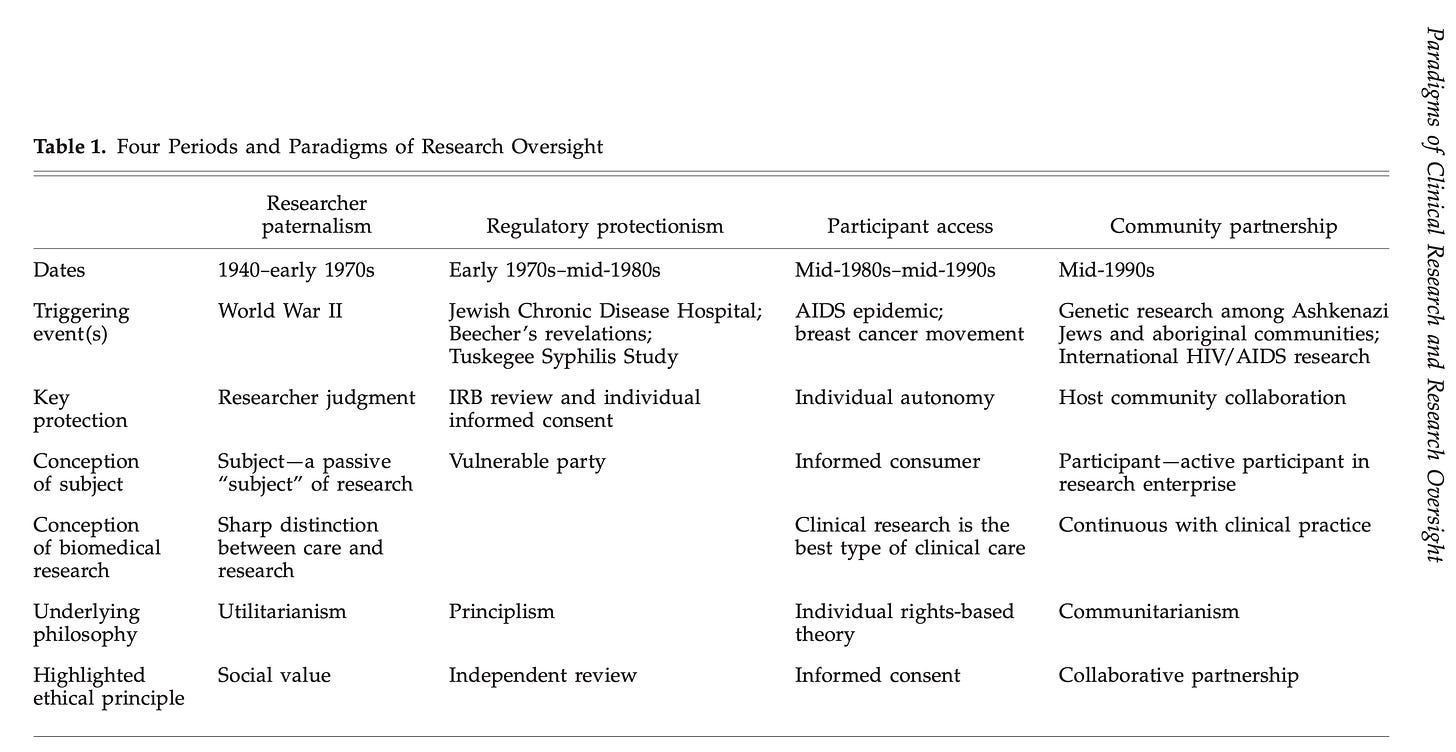Four Paradigms of Clinical Research and Research Oversight, 2005
The community partnership paradigm deemphasizes individual autonomy and the protections of individual informed consent.
Four Paradigms of Clinical Research and Research Oversight
EZEKIEL J. EMANUEL and CHRISTINE GRADY
The understanding of appropriate ethical protections for participants of bio- medical research has not been static. It has evolved over time, with the evolution of biomedical research as well as social values. Since World War II, there have been four major paradigms of research and research oversight operative in the United States (Table 1). These paradigms incorporate different values and provide different approaches to research oversight and the protec- tion of research participants.
Christine Grady, MSN, PhD, NIH, Chief of Bio Ethics, Head of Section of Human Subjects Research, married Dr Anthony Fauci in 1985.
Communitarian-based Paradigm of Human Research Subjects: basically, wherein the general public feels like it is their duty as humans to possibly sacrifice their own lives for medical research for the good of humanity.
The community partnership paradigm rejects professional paternalism as a protection because the responsibilities and privileges of the researcher occur only within a wider social framework.
In addition, this paradigm deemphasizes individual autonomy and the protections of individual informed consent. Importantly, it does not reject them but places them into a wider context of protections that need to be satisfied prior to seeking the consent of individuals. In this way community partnership is based on a more communitarian model and less on an individual rights model.
It is unclear how the understanding of clinical research and ethical oversight might evolve in the future. Greater engagement of research participants through- out the process of developing research agendas and protocols, the conduct and dissemination of research, and altering of health policies in relationship to research results is certain to shift the paradigm further.

